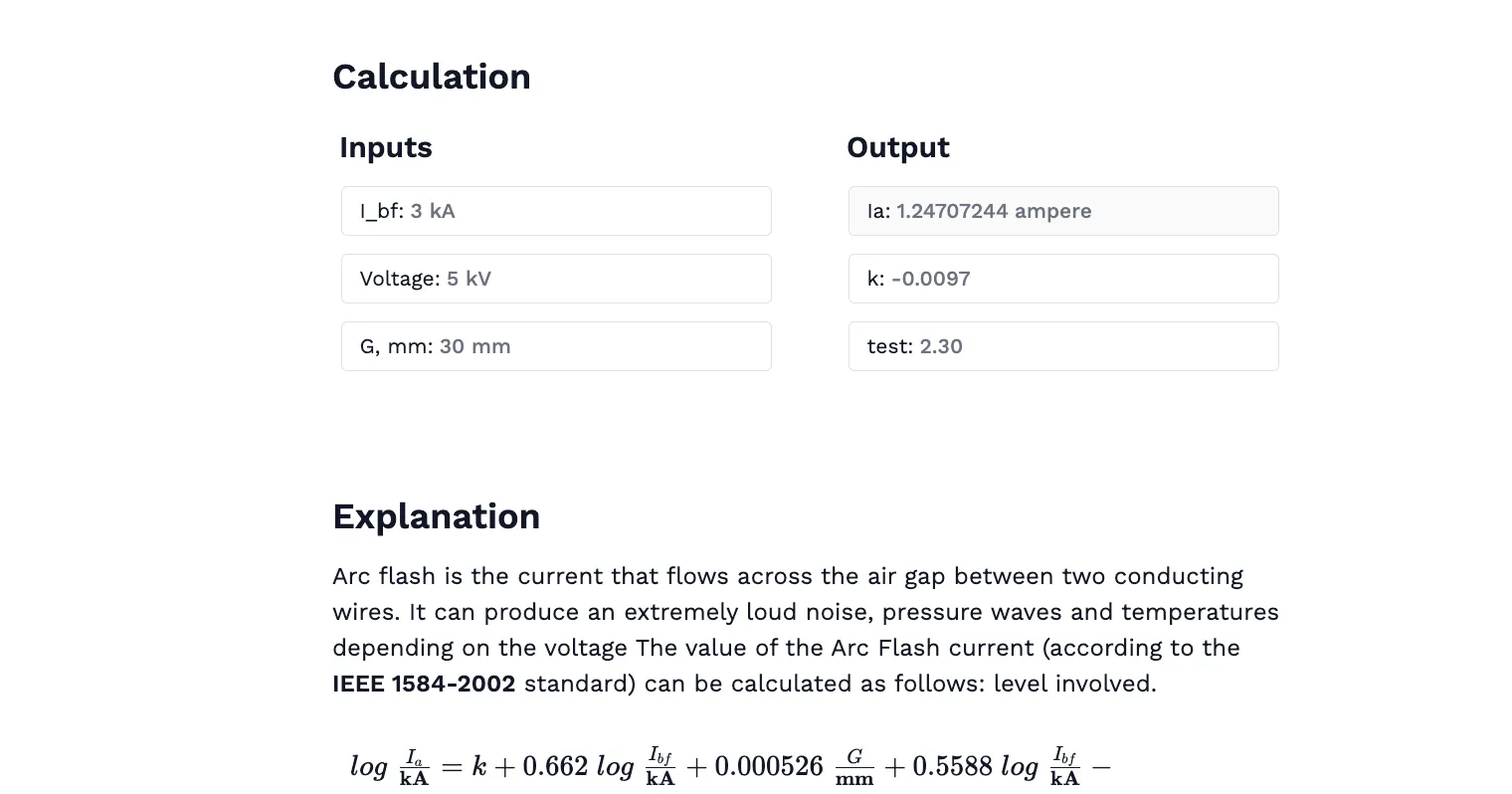Free Arc Flash Calculator. Step-by-step, engineering-grade tool with downloadable report.

This template is not available yet. You can sign up and create it yourself!
Or let us know if you'd like to be notified when it’s ready:
About this calculator
The Arc Flash Calculator helps you quickly determine the arcing current value, based on key inputs like bolted short-circuit current, system voltage, and conductor gap. This tool is essential for evaluating electrical hazards in power systems, allowing you to assess arc flash risks and ensure safety compliance in line with industry standards.
This calculator is for:
- Electrical engineers assessing arc flash hazards in power distribution systems.
- Safety managers ensuring that workplaces meet electrical safety requirements.
- Maintenance teams working on high-voltage equipment to identify risk zones and establish safety boundaries.
The Arc Flash Calculator provides a fast and reliable way to conduct feasibility checks for arc flash events, helping users determine whether additional protective measures are needed. While manual calculation methods exist, they can be time-consuming and complex, often requiring the use of reference tables and charts. This calculator simplifies the process, delivering accurate results instantly.
For further study on arc flash and electrical safety calculations, books such as "NFPA 70E Handbook for Electrical Safety in the Workplace" and "Electrical Safety Handbook" by John Cadick offer detailed insights and guidance on managing arc flash risks.
Engineering templates
Common calculators
Design guides
FAQs
What factors influence the severity of an arc flash event?
The severity is influenced by variables like the bolted fault current, system voltage, conductor spacing, and the duration of the arc fault. These factors help determine the intensity of the arc flash and the level of protective measures required.
What is an arc flash and why is it dangerous?
An arc flash is a dangerous release of energy caused by an electrical fault, resulting in heat, pressure, and potential injury. It poses significant risks to personnel and equipment if not properly managed.
How does the conductor gap affect arc flash risk?
The gap between conductors plays a crucial role in determining the arcing current. A larger gap generally leads to a higher arc voltage, influencing the energy released during the fault.
Learn about the benefits of using CalcTree on engineering projects!


